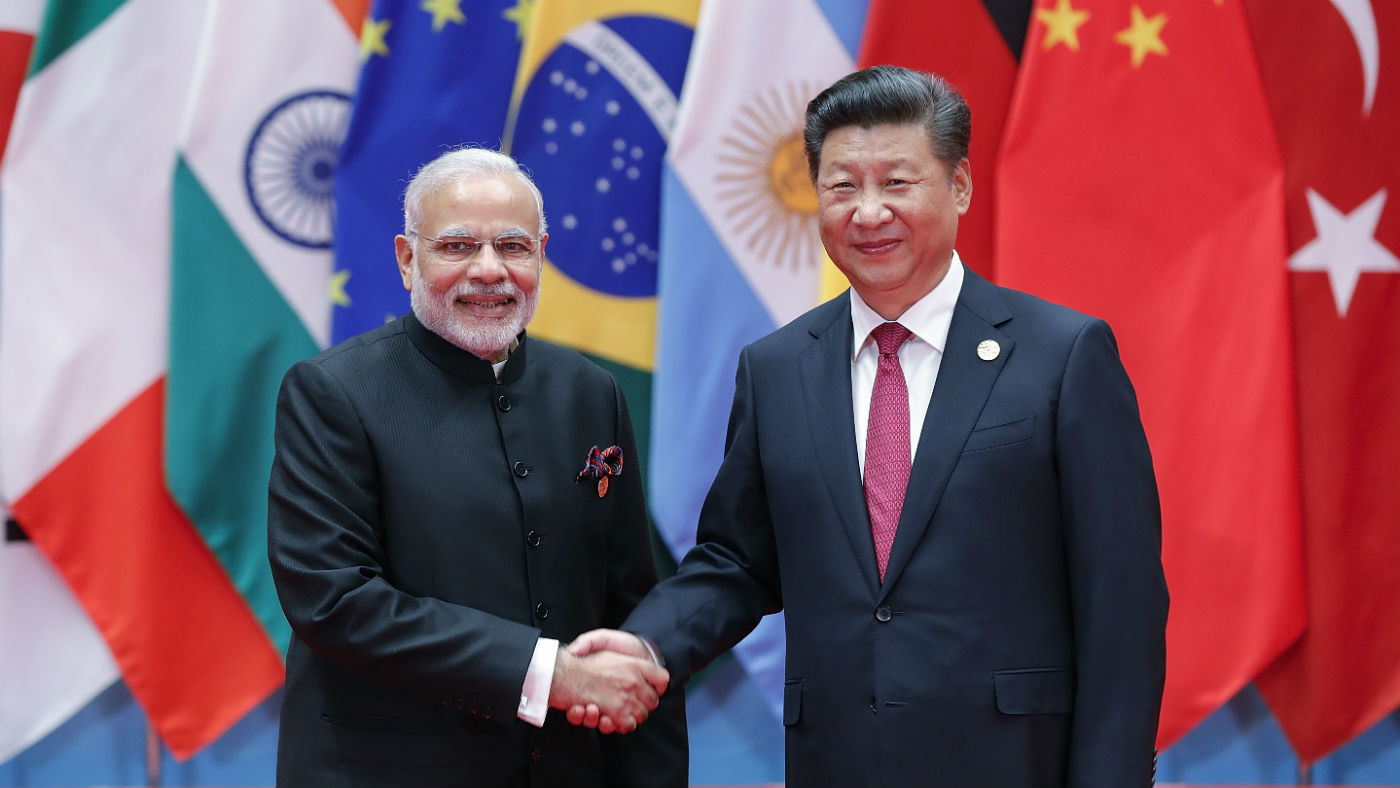The other summit: why today’s Xi-Modi meeting matters
Rapprochement between nuclear powers China and India could shift world power balance

A free daily email with the biggest news stories of the day – and the best features from TheWeek.com
You are now subscribed
Your newsletter sign-up was successful
With attention focused on the historic summit between North and South Korea, an arguably more important meeting is taking place between two leaders who together rule a third of the world’s population.
In a meeting that was unthinkable just six months ago, Chinese President Xi Jinping will host Indian Prime Minister Narendra Modi in Wuhan for an informal summit, “the clearest sign yet of thawing relations between the two estranged nuclear powers”, says CNN.
Having been on the brink of armed conflict over a border dispute last year, the world’s two most populous and fastest-growing economies cement a remarkable turnaround today. But what do both men hope to gain?
The Week
Escape your echo chamber. Get the facts behind the news, plus analysis from multiple perspectives.

Sign up for The Week's Free Newsletters
From our morning news briefing to a weekly Good News Newsletter, get the best of The Week delivered directly to your inbox.
From our morning news briefing to a weekly Good News Newsletter, get the best of The Week delivered directly to your inbox.
For Modi, the benefits of stabilising relations with China are clear. With elections scheduled for next year in India,the nationalist leader will “be pushing to get less from President Xi: less trouble like the embarrassing territorial showdown that put the two countries on alert last year”, The New York Times says. And “less worry of the kind India is feeling right now about rising Chinese influence on its doorstep, in Sri Lanka, Nepal and the Maldives”.
Modi is popular with voters, says CNN, but “a potentially bruising encounter with China, especially one that involves the two countries’ armed forces, could see his poll numbers dented”. The meeting with Xi, “can both help to mitigate that risk, while simultaneously opening up the possibility of increased economic cooperation at a time of global uncertainty”.
There are advantages for China too. Last year, India was the only country to publicly reject China’s flagship Belt and Road Initiative (BRI), a network of infrastructure investment stretching from Asia to Europe.
Shashank Joshi, writing for the BBC, says: “China is eager to dampen India's hostility to the scheme. It is also concerned about last year's meeting of India, the US, Japan and Australia - informally known as the Quad - after a decade-long hiatus, and their joint efforts to develop alternatives to the BRI.
A free daily email with the biggest news stories of the day – and the best features from TheWeek.com
“By engaging Mr Modi, Mr Xi hopes to slow India's steady drift towards America and its allies.”
As for the rest of the world, the prospect of the two nuclear and economic powerhouses joining forces is a significant threat to the current balance of power in the region, and “would signal a significant geopolitical shift and the type of major policy win befitting Xi’s new status” as arguably the most powerful person on the planet, says CNN.
-
 Political cartoons for February 22
Political cartoons for February 22Cartoons Sunday’s political cartoons include Black history month, bloodsuckers, and more
-
 The mystery of flight MH370
The mystery of flight MH370The Explainer In 2014, the passenger plane vanished without trace. Twelve years on, a new operation is under way to find the wreckage of the doomed airliner
-
 5 royally funny cartoons about the former prince Andrew’s arrest
5 royally funny cartoons about the former prince Andrew’s arrestCartoons Artists take on falling from grace, kingly manners, and more
-
 The fall of the generals: China’s military purge
The fall of the generals: China’s military purgeIn the Spotlight Xi Jinping’s extraordinary removal of senior general proves that no-one is safe from anti-corruption drive that has investigated millions
-
 Epstein files topple law CEO, roil UK government
Epstein files topple law CEO, roil UK governmentSpeed Read Peter Mandelson, Britain’s former ambassador to the US, is caught up in the scandal
-
 Iran and US prepare to meet after skirmishes
Iran and US prepare to meet after skirmishesSpeed Read The incident comes amid heightened tensions in the Middle East
-
 EU and India clinch trade pact amid US tariff war
EU and India clinch trade pact amid US tariff warSpeed Read The agreement will slash tariffs on most goods over the next decade
-
 Israel retrieves final hostage’s body from Gaza
Israel retrieves final hostage’s body from GazaSpeed Read The 24-year-old police officer was killed during the initial Hamas attack
-
 China’s Xi targets top general in growing purge
China’s Xi targets top general in growing purgeSpeed Read Zhang Youxia is being investigated over ‘grave violations’ of the law
-
 Panama and Canada are negotiating over a crucial copper mine
Panama and Canada are negotiating over a crucial copper mineIn the Spotlight Panama is set to make a final decision on the mine this summer
-
 Why Greenland’s natural resources are nearly impossible to mine
Why Greenland’s natural resources are nearly impossible to mineThe Explainer The country’s natural landscape makes the task extremely difficult